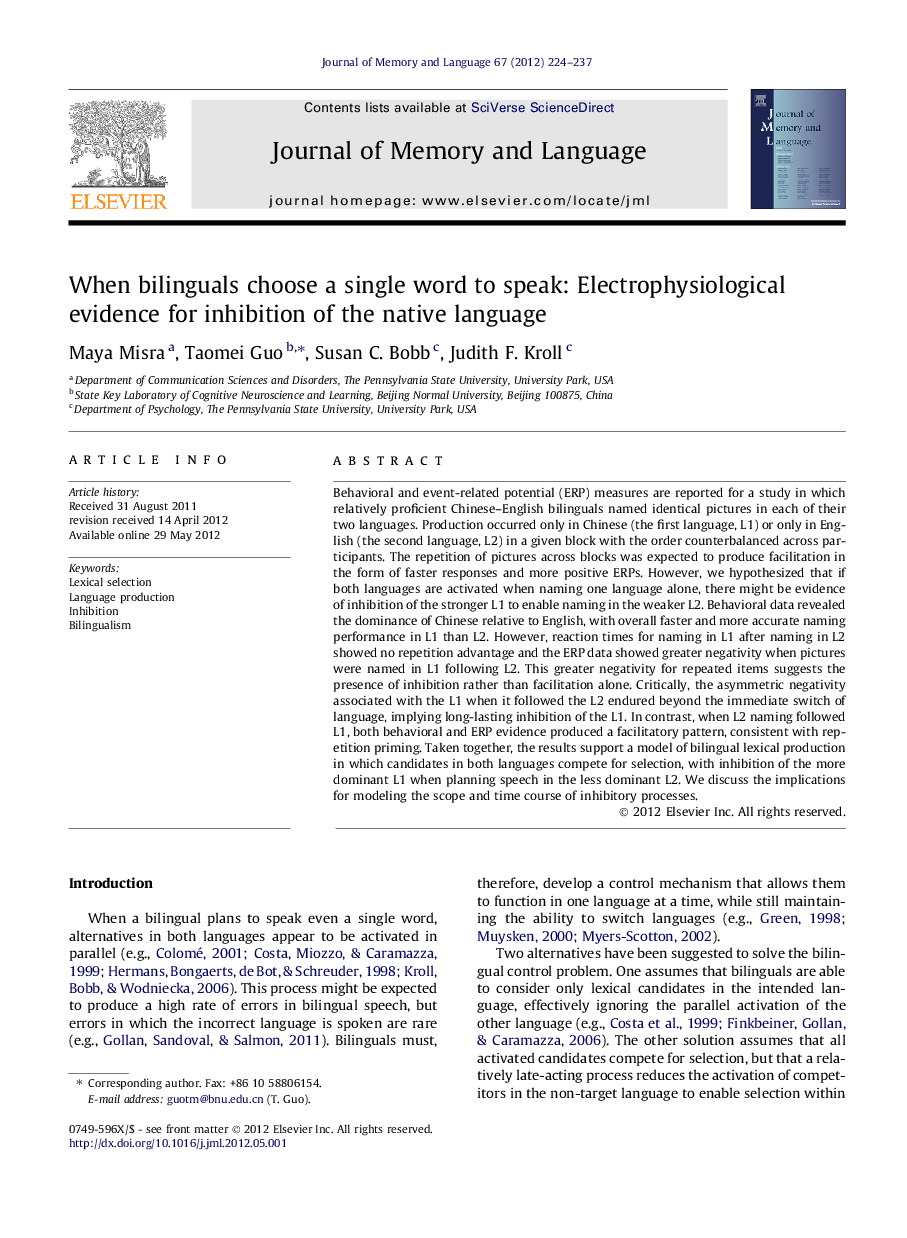| کد مقاله | کد نشریه | سال انتشار | مقاله انگلیسی | نسخه تمام متن |
|---|---|---|---|---|
| 932027 | 923060 | 2012 | 14 صفحه PDF | دانلود رایگان |

Behavioral and event-related potential (ERP) measures are reported for a study in which relatively proficient Chinese–English bilinguals named identical pictures in each of their two languages. Production occurred only in Chinese (the first language, L1) or only in English (the second language, L2) in a given block with the order counterbalanced across participants. The repetition of pictures across blocks was expected to produce facilitation in the form of faster responses and more positive ERPs. However, we hypothesized that if both languages are activated when naming one language alone, there might be evidence of inhibition of the stronger L1 to enable naming in the weaker L2. Behavioral data revealed the dominance of Chinese relative to English, with overall faster and more accurate naming performance in L1 than L2. However, reaction times for naming in L1 after naming in L2 showed no repetition advantage and the ERP data showed greater negativity when pictures were named in L1 following L2. This greater negativity for repeated items suggests the presence of inhibition rather than facilitation alone. Critically, the asymmetric negativity associated with the L1 when it followed the L2 endured beyond the immediate switch of language, implying long-lasting inhibition of the L1. In contrast, when L2 naming followed L1, both behavioral and ERP evidence produced a facilitatory pattern, consistent with repetition priming. Taken together, the results support a model of bilingual lexical production in which candidates in both languages compete for selection, with inhibition of the more dominant L1 when planning speech in the less dominant L2. We discuss the implications for modeling the scope and time course of inhibitory processes.
► Both languages compete for selection in bilingual language production.
► There is more than a single locus of inhibition of the non-target language.
► Speaking a weaker language requires globally inhibiting the more dominant language.
Journal: Journal of Memory and Language - Volume 67, Issue 1, July 2012, Pages 224–237